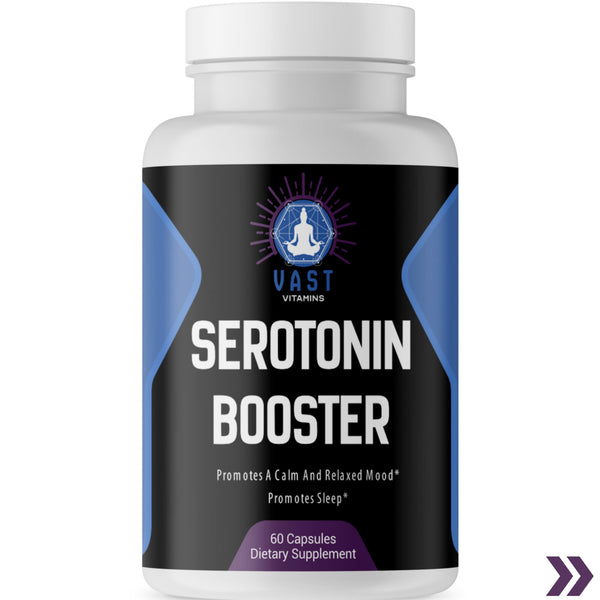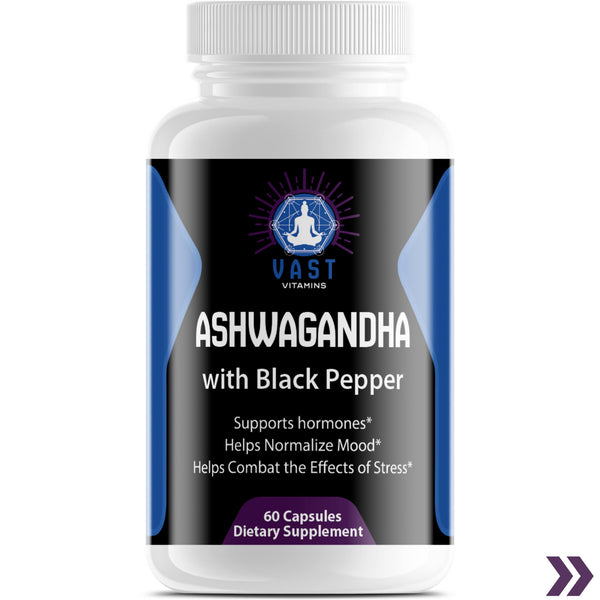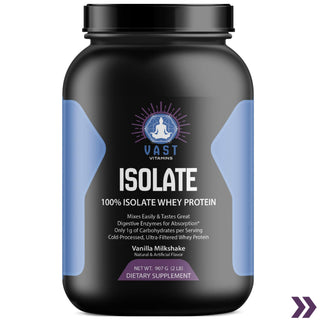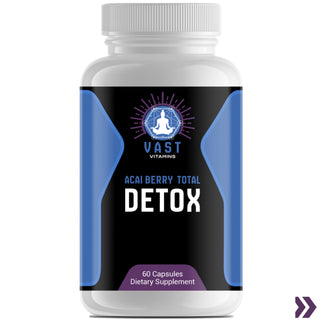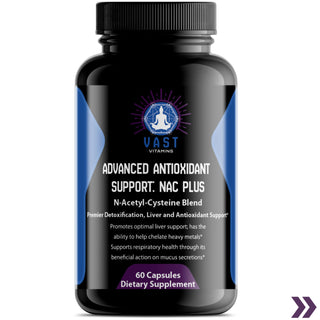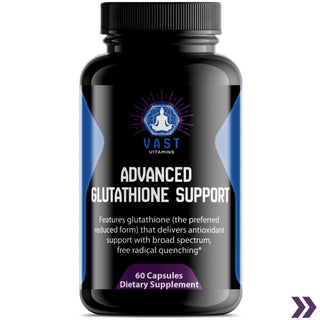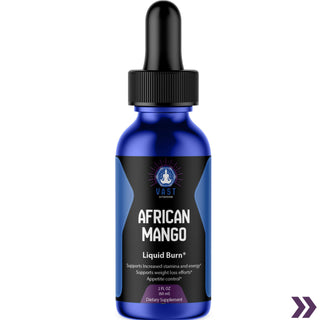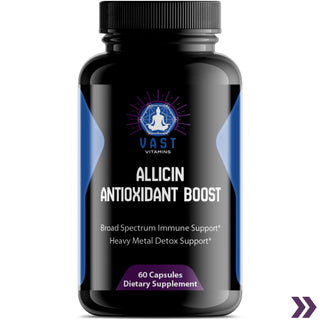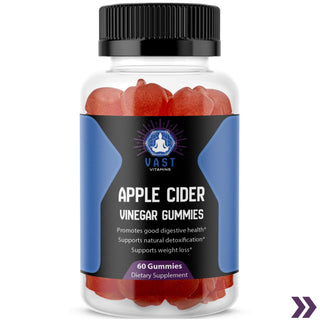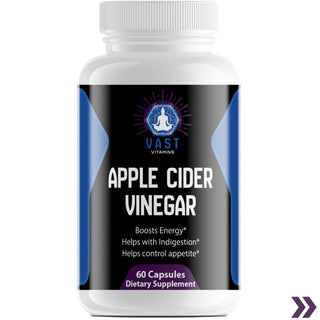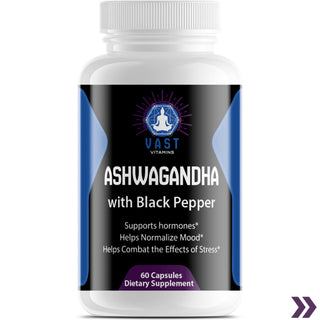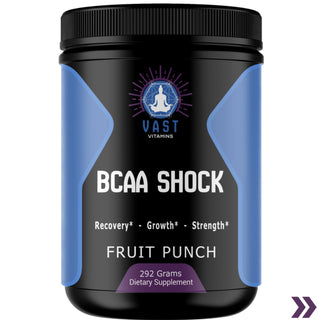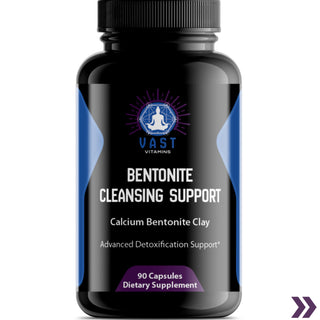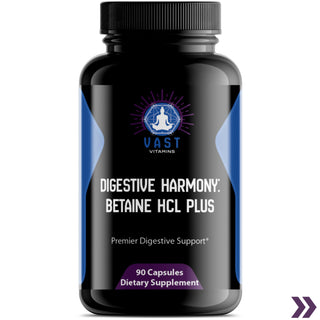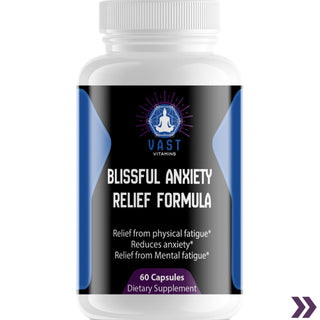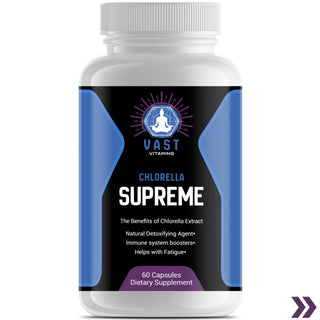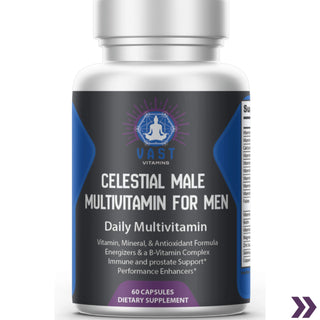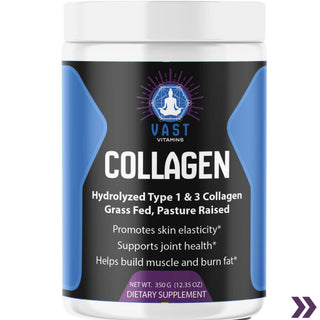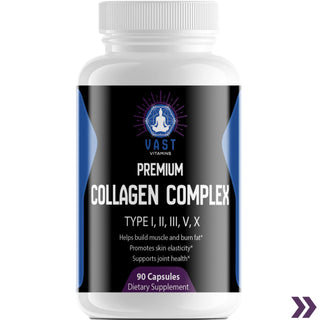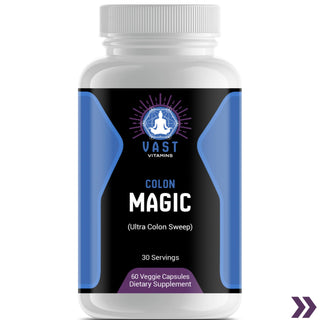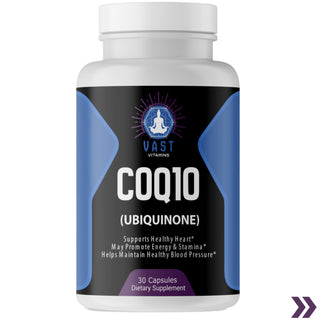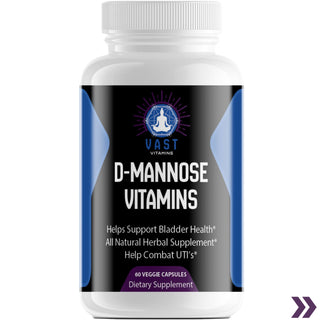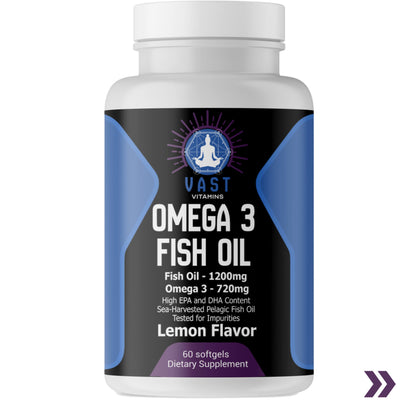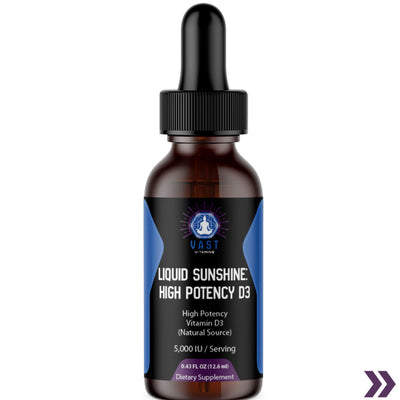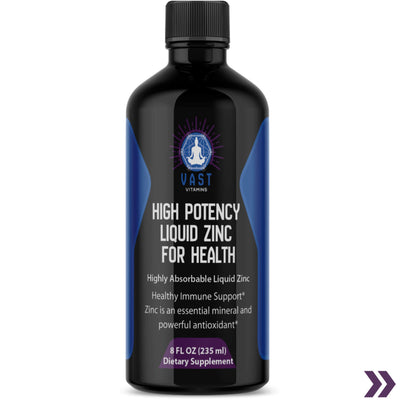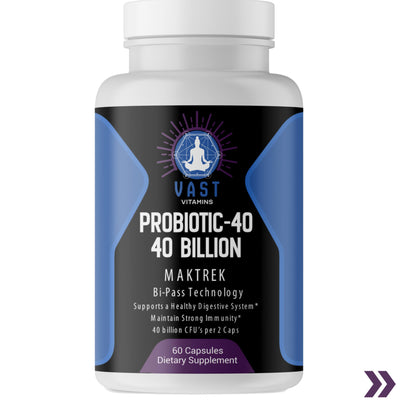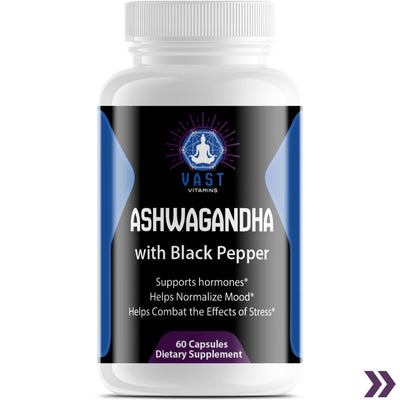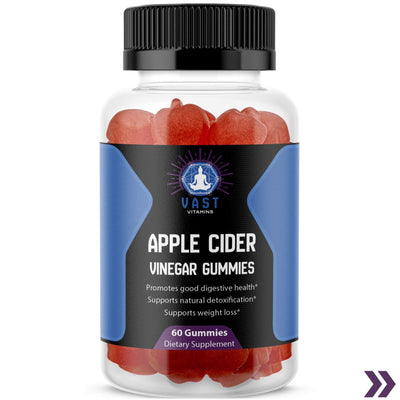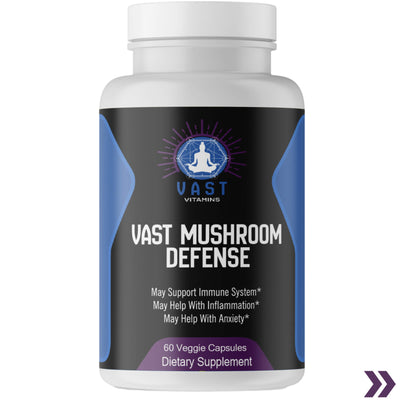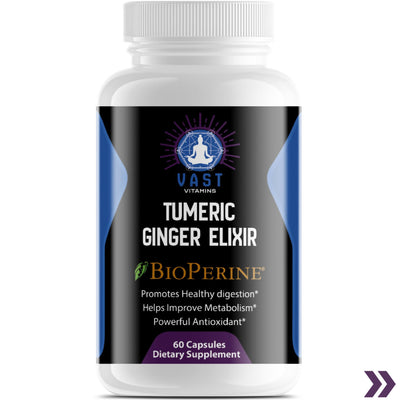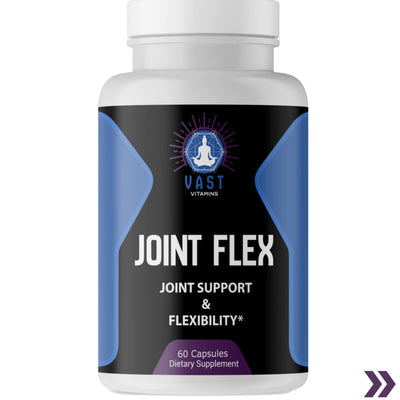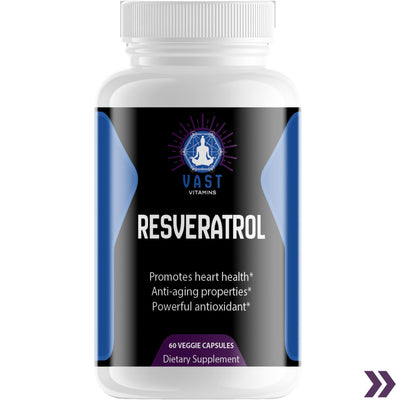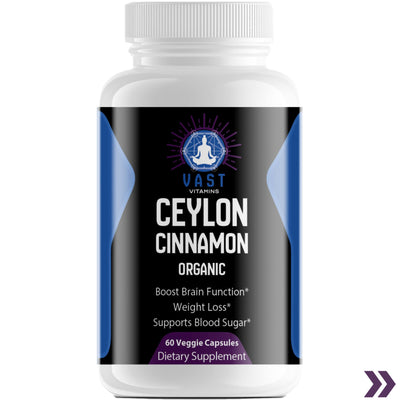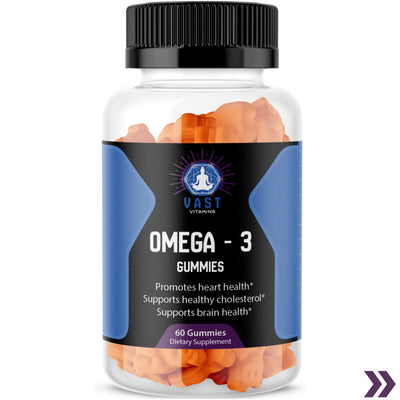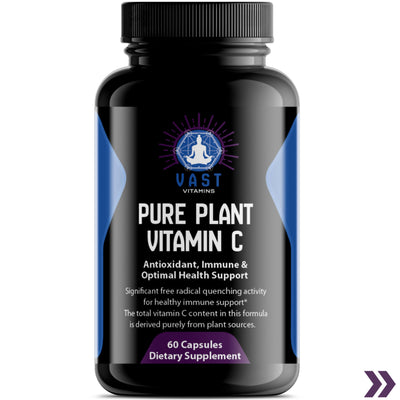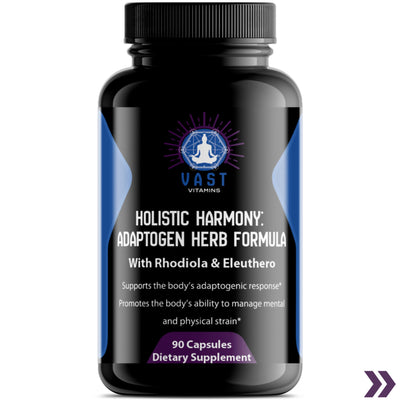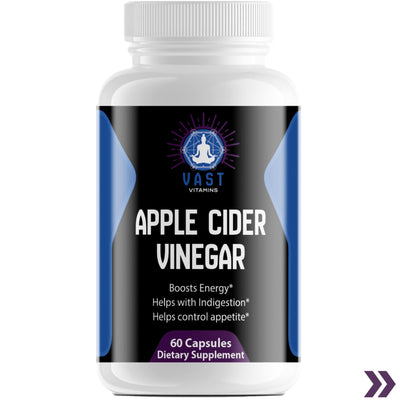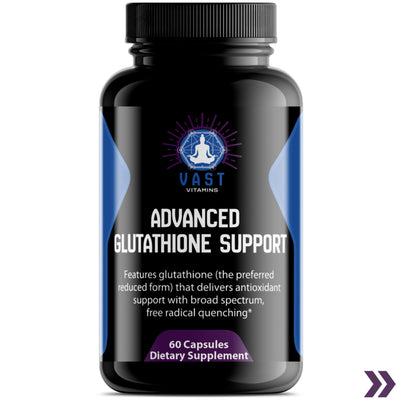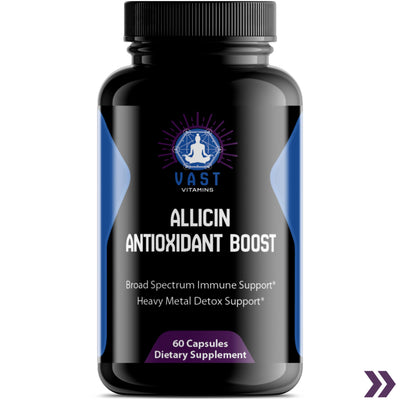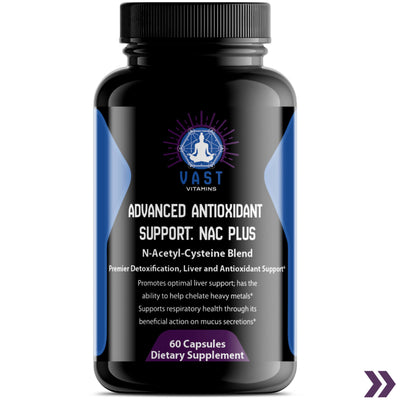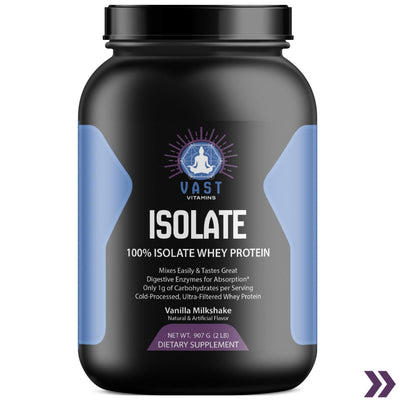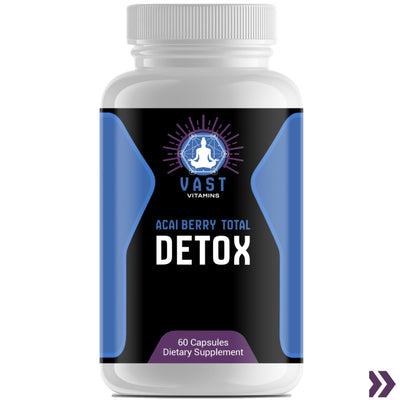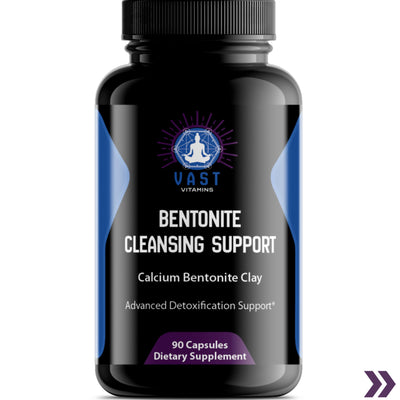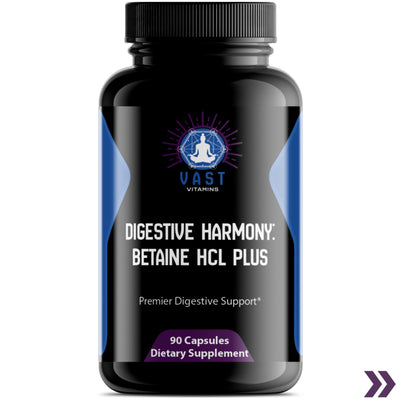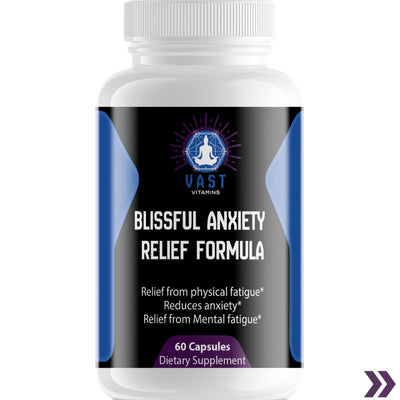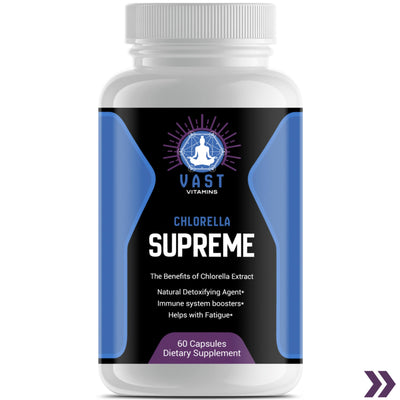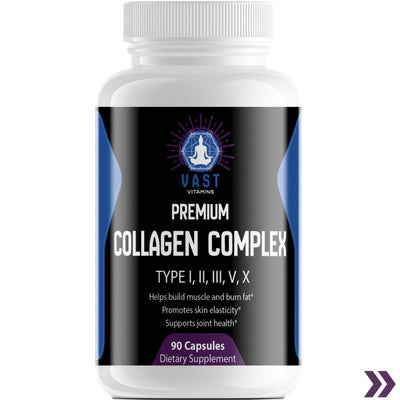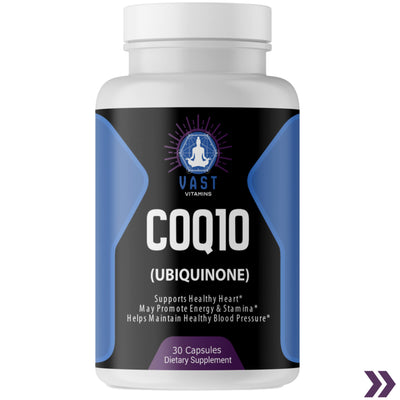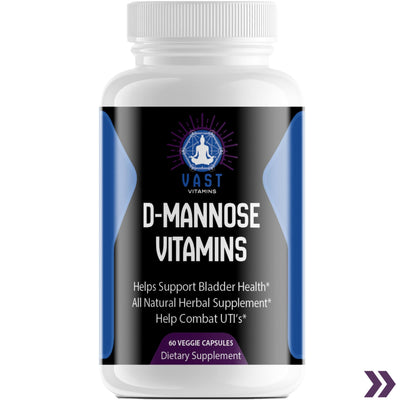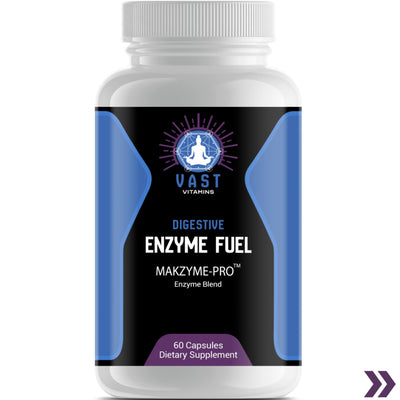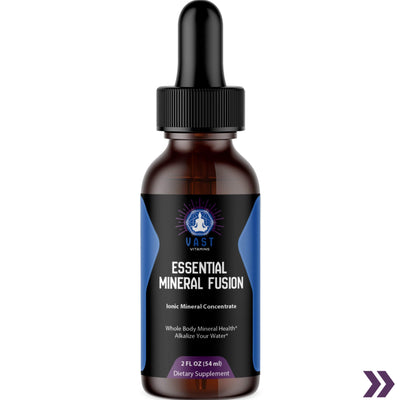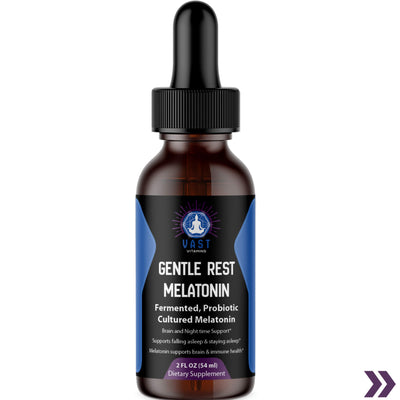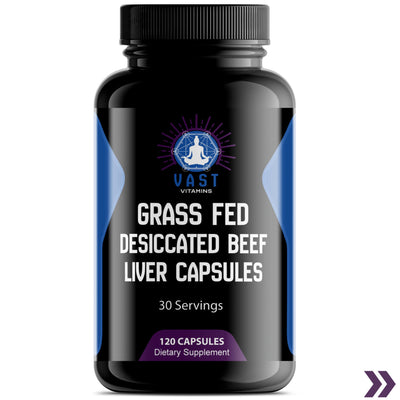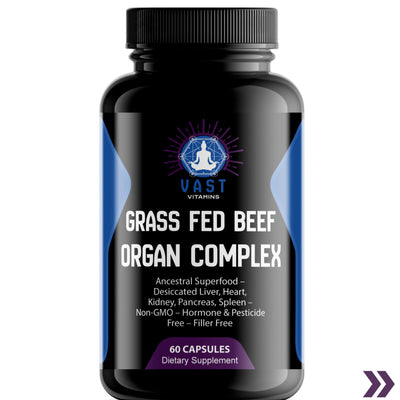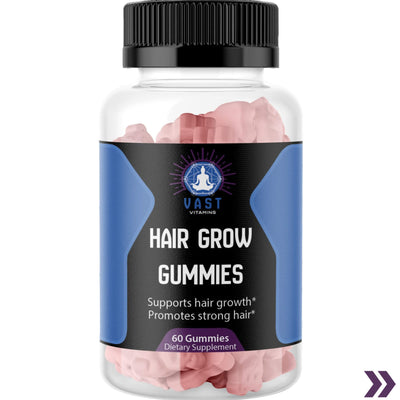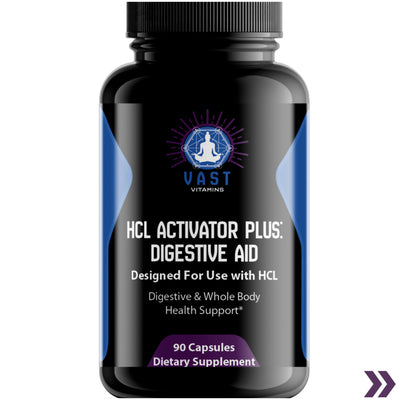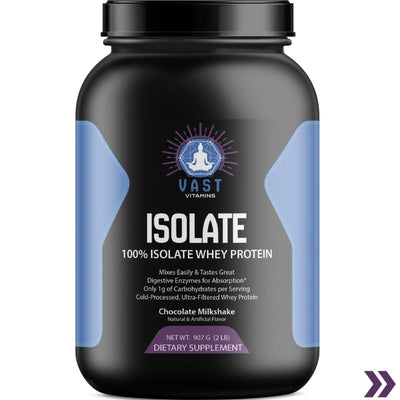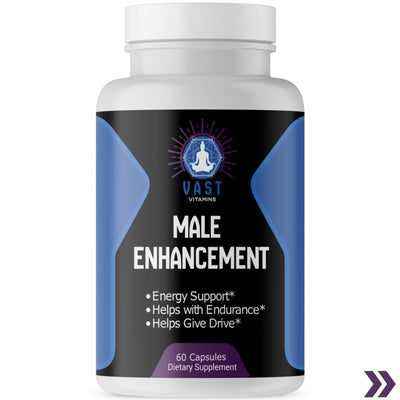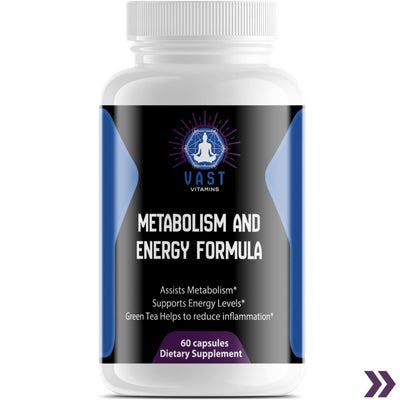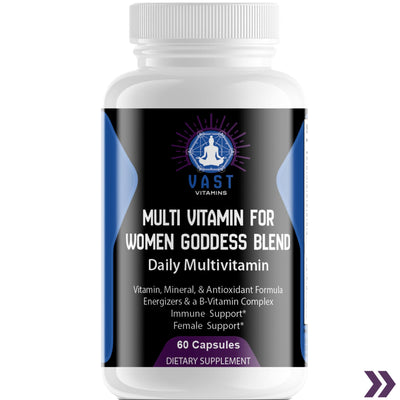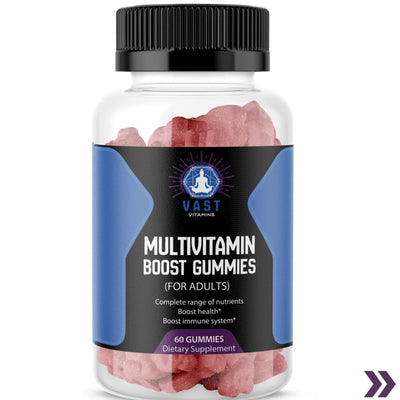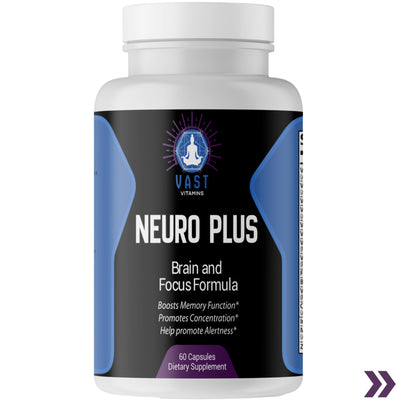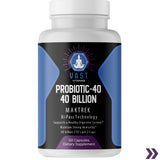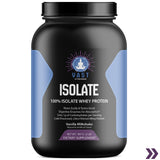The Importance of Vitamins and Minerals in the Body!
Welcome to the world of vitamins and minerals! Often referred to as the building blocks of the body, vitamins and minerals play a pivotal role in maintaining our health and well-being. This post kicks off a comprehensive series where we'll explore each aspect of how these essential nutrients function in the body.
First things first: why should you care about vitamins and minerals? It's simple. Every cell in your body relies on these nutrients to function properly. They help in processes ranging from converting food into energy to fortifying your immune system. Without an adequate intake of vitamins and minerals, our bodies cannot perform at their best.
Vitamins and minerals are involved in healing wounds, shoring up bones, and bolstering your immune system. They also convert food into energy, and repair cellular damage. But their roles don't stop there—they affect everything from your skin health to how well you can see at night.
Understanding the basics of these nutrients is the first step towards optimizing your health. As we move through this series, we'll delve deeper into the specific functions and benefits of different types of vitamins and minerals.
Now, let's get ready to explore how these nutrients specifically function within our bodies.
Understanding the Role of Vitamins in the Body.
Following our introduction to the importance of vitamins and minerals, let's narrow down our focus to the specific roles of vitamins in the body. Vitamins are organic compounds that are crucial for sustaining life. They mostly function as coenzymes or parts of coenzymes, which are molecules that assist enzymes in triggering various biochemical reactions necessary for good health.
There are two main types of vitamins: fat-soluble and water-soluble. Fat-soluble vitamins (like Vitamins A, D, E, and K) are stored in the body's fatty tissue and liver, and are released as needed. On the other hand, water-soluble vitamins (such as the B-complex vitamins and Vitamin C) must be replenished more frequently as they are not stored in the body in significant amounts.
Each vitamin has a unique role in the body:
- Vitamin A is key for vision and immune function.
- Vitamins B (there are several) are integral for energy production, brain function, and cell metabolism.
- Vitamin C helps in the synthesis of collagen and functions as a powerful antioxidant.
- Vitamin D is critical for bone health and calcium absorption.
- Vitamin E protects against oxidative stress and maintains skin health.
- Vitamin K is essential for blood clotting and bone metabolism.
As we continue to explore the benefits and types of vitamins, keep in mind how each one contributes to overall health and supports the body's complex systems. Each section of this series builds upon the last, ensuring a comprehensive understanding of how these nutrients impact your health.
Exploring the Benefits of Minerals in Maintaining Good Health.
Having delved into the crucial roles vitamins play in our bodies, let's turn our attention to their indispensable partners: minerals. Minerals, like vitamins, are essential nutrients that our bodies need to function optimally. They play a variety of roles, from building strong bones to transmitting nerve impulses. Some minerals are even involved in making hormones or maintaining a normal heartbeat.
There are two categories of minerals: macro-minerals and trace minerals. Macro-minerals, such as calcium, magnesium, and potassium, are needed in larger amounts. Trace minerals, like iron, zinc, and selenium, are necessary but in smaller quantities.
Here are some key benefits of a few vital minerals:
- Calcium is renowned for its role in bone health and is also important in muscle function and nerve signaling.
- Iron is crucial for creating hemoglobin, which carries oxygen in the blood.
- Magnesium plays a part in over 300 enzyme reactions, including energy creation and protein formation.
- Zinc is vital for immune function, wound healing, and DNA synthesis.
- Selenium functions as a powerful antioxidant, helping to combat oxidative stress.
Understanding the full spectrum of benefits provided by minerals reveals just how critical a balanced diet is for maintaining good health. Each mineral has a unique role that contributes to the body's proper functioning, and knowing how to maintain the right balance of these minerals can help you lead a healthier life.
Fat-Soluble Vitamins: Essential for Proper Bodily Functions.
Now that we've outlined the basic types of vitamins, let's focus on fat-soluble vitamins. These vitamins are vital to health, each contributing uniquely to the body's function and well-being. Unlike water-soluble vitamins, fat-soluble vitamins are stored in the liver and fat tissues until needed, making them particularly significant for their long-lasting effects in the body.
Vitamin A
Vitamin A is crucial for vision as it maintains healthy cells in the eyes that react to light changes. It also plays an essential role in immune function and skin health. Good sources of Vitamin A include carrots, sweet potatoes, and leafy greens, which contain beta-carotene, a precursor to Vitamin A.
Vitamin D
Often called the "sunshine vitamin," Vitamin D is unique because the body can produce it when exposed to sunlight. It's essential for calcium absorption, making it vital for maintaining healthy bones and teeth. Recent studies also suggest its role in immune response and mood regulation. Foods rich in Vitamin D include fortified milk, fatty fish, and egg yolks.
Vitamin E
Vitamin E is a powerful antioxidant that helps protect cells from damage caused by free radicals, which are often linked to chronic diseases and aging. It also supports the immune system, skin health, and cell function. Vitamin E can be found in abundance in nuts, seeds, and vegetable oils.
Vitamin K
Vitamin K is key for blood clotting and bone metabolism. Deficiencies in Vitamin K can lead to bleeding problems and weakened bones. It is predominantly found in green leafy vegetables like spinach and kale, as well as in broccoli and Brussels sprouts.These fat-soluble vitamins, while less frequently needed than their water-soluble counterparts, are no less essential. They must be consumed in the diet regularly to maintain reserve levels and support overall health. Because they are stored in the body's fat, maintaining a balance is crucial; excessive consumption can lead to toxicity.
Understanding the significance of these vitamins helps in making informed choices about diet and supplementation to ensure all nutritional needs are met.
Water-Soluble Vitamins: Promoting Optimal Health and Well-being.
Continuing our journey through the world of vitamins, let's explore water-soluble vitamins. Unlike their fat-soluble counterparts, water-soluble vitamins are not stored in the body and must be replenished regularly through our diet. They play crucial roles in energy production, immune function, and overall maintenance of cellular health.
Vitamin C
Perhaps the most well-known of all water-soluble vitamins, Vitamin C is a powerhouse antioxidant that supports the immune system, aids in the repair and regeneration of tissues, and helps in the absorption of iron from plant-based foods. It is crucial for the synthesis of collagen, which plays a vital role in wound healing. Citrus fruits, strawberries, bell peppers, and broccoli are rich in Vitamin C.
B Vitamins
The B-complex vitamins are a group of eight vitamins that have essential roles in energy production and the creation of red blood cells. Here's a quick rundown of their key functions:- Thiamine (B1): Helps convert nutrients into energy; essential for cardiac function and nerve transmission.
- Riboflavin (B2): Important for growth and overall good health; helps break down proteins, fats, and carbohydrates.
- Niacin (B3): Plays a role in cellular signaling, metabolism, and DNA production and repair.
- Pantothenic Acid (B5): Necessary for the synthesis of coenzyme A (CoA), a key factor in energy metabolism.
- Pyridoxine (B6): Important for protein metabolism, cognitive development, and immune function.
-
Biotin (B7): Assists in various metabolic reactions involving fats, carbohydrates, and proteins.
- Folate (B9): Essential for proper brain function and plays a crucial role in mental and emotional health; necessary for the production of DNA and RNA.
- Cobalamin (B12): Necessary for nerve tissue health, brain function, and the production of red blood cells; mostly found in animal products, which makes B12 supplementation important for vegetarians and vegans.
Additional Considerations.
Since water-soluble vitamins are not stored in significant amounts, daily intake is essential to prevent deficiencies. Each B vitamin has a slightly different role and deficiency symptoms, making them critical to various body functions. Furthermore, because they are excreted in urine, it is rare to have toxic levels of water-soluble vitamins, though it's not impossible with supplements.Emphasizing a diet rich in fruits, vegetables, whole grains, and lean proteins can help ensure adequate intake of these vital nutrients. Whether you're trying to boost your energy levels, enhance your immune system, or maintain your cognitive function, incorporating a variety of these vitamin-rich foods can have profound health benefits.
Incorporating Vitamin-Rich Foods into a Healthy Diet.
Having explored the diverse roles and types of vitamins and minerals, it's crucial to understand how to effectively incorporate these nutrient-packed foods into your daily diet. A well-rounded diet rich in vitamins and minerals can boost your health significantly, helping to prevent deficiencies and maintain optimal body functions. Here are practical tips and strategies for enriching your diet with vitamin-rich foods.1. Start with a Colorful Plate.
Embrace a variety of colors in your meals. Each color in fruits and vegetables is associated with different nutrients. For example, orange and yellow fruits and vegetables like carrots and sweet potatoes are high in Vitamin A, while dark leafy greens like spinach and kale are rich in Vitamins K, C, and several B vitamins.
2. Choose Whole Grains Over Refined.
Swap out refined grains like white bread and pasta for whole grains such as quinoa, brown rice, and whole wheat. Whole grains retain all parts of the grain, giving them a higher content of B vitamins, iron, and fiber.
3. Incorporate Lean Proteins.
Include lean protein sources like poultry, fish, beans, and legumes in your diet. These foods are not only good sources of protein but also contain essential vitamins and minerals like B vitamins (especially niacin and B12), iron, and zinc.
4. Snack on Nuts and Seeds.
Nuts and seeds are excellent sources of vitamins and minerals. Almonds, for instance, are rich in Vitamin E, while sunflower seeds can provide a significant amount of selenium. A small handful as a snack or sprinkled over salads can boost your nutrient intake.
5. Add Dairy or Alternatives.
Dairy products and fortified alternatives are great sources of Vitamin D and calcium. If you choose dairy alternatives, look for those that are fortified with these nutrients.
6. Regularly Include Fatty Fish.
Fatty fish like salmon, mackerel, and sardines are rich in omega-3 fatty acids and Vitamin D. Aim to include them in your meals a couple of times a week.
7. Utilize Fortified Foods.
Some foods and beverages are fortified with vitamins and minerals. This includes some breakfast cereals, plant-based milks, and juices. Check labels to find products that are fortified, especially with nutrients that may be lacking in your diet.
8. Cook Smart.
The way you prepare food can affect its nutrient content. For instance, steaming or grilling vegetables can retain more vitamins than boiling. Similarly, incorporating healthy fats like olive oil when cooking can help increase the absorption of fat-soluble vitamins.Incorporating these tips into your daily routine doesn't need to be daunting. Start small, perhaps by adding one extra serving of vegetables to your plate or swapping out your morning cereal for a whole grain alternative. Over time, these changes can lead to significant nutritional benefits and enhance your overall health.

The Benefits of Including Plant-Based Foods in Your Diet.
Including plant-based foods in your diet is an effective way to improve your overall health and well-being. Plant-based diets are rich in nutrients and offer a variety of health benefits, making them an excellent choice for anyone looking to maintain a healthy lifestyle. Let's dive into why plant-based foods are so beneficial and how they can enhance your diet.
Nutrient-Rich.
Plant-based foods are loaded with essential nutrients that benefit the body in numerous ways. They are high in vitamins, minerals, fiber, antioxidants, and phytonutrients that are not always present in high quantities in animal-based foods. For example:- Fiber: Found in fruits, vegetables, legumes, and whole grains, fiber helps regulate the digestive system and can aid in weight management by making you feel fuller longer.
- Antioxidants: Many plant-based foods are rich in antioxidants, which help combat oxidative stress and can reduce the risk of chronic diseases such as heart disease and cancer.
Heart Health.
Studies have shown that plant-based diets can reduce the risk of cardiovascular disease. Plant foods are generally low in saturated fat, contain no cholesterol, and are rich in heart-healthy fats like mono- and polyunsaturated fatty acids. Foods like nuts, seeds, avocados, and olive oil are great sources of these beneficial fats.
Reduced Risk of Chronic Diseases.
Adopting a plant-based diet can lead to a lower risk of developing chronic diseases such as hypertension, type 2 diabetes, and certain types of cancer. This is partly due to the lower levels of harmful fats and higher intake of dietary fiber and essential nutrients.
Weight Management.
Plant-based diets are typically lower in calories and fats compared to diets high in meat and other animal products, making them an effective option for weight management. The high fiber content also plays a key role in weight control, as it helps people feel full, thereby reducing overall calorie intake.
Environmental Benefits.
Besides health benefits, reducing meat consumption and increasing intake of plant-based foods can have a positive impact on the environment. Plant-based diets require less energy, land, and water resources and result in lower carbon emissions compared to diets rich in animal-based foods.
How to Incorporate More Plant-Based Foods.
- Start Small: If you're new to plant-based eating, start by incorporating more fruits and vegetables into your meals.
- Explore Plant Proteins: Try adding legumes, tofu, and tempeh to your diet to replace some of the animal proteins.
- Experiment with Whole Grains: Replace refined grains with whole grains like quinoa, barley, and farro.
- Diverse Your Intake: Try a variety of vegetables, fruits, nuts, and seeds to keep your meals exciting and nutritious.
Vitamin Deficiency and Its Impacts on Health.
After discussing the abundance of nutrients found in plant-based foods and other vitamin-rich dietary options, it's essential to address the other side of the spectrum: vitamin deficiency. Vitamin deficiencies can have significant and sometimes severe impacts on health, affecting everything from energy levels to long-term organ function. Here's a closer look at the consequences of lacking essential vitamins and the signs to watch out for.
Common Vitamin Deficiencies and Their Symptoms.
Vitamin D Deficiency:
- Symptoms: Fatigue, bone pain, muscle weakness, mood changes, and frequent infections.
- Impact: Long-term deficiency can lead to osteoporosis and an increased risk of fractures.
Vitamin B12 Deficiency:
- Symptoms: Fatigue, weakness, constipation, loss of appetite, weight loss, numbness and tingling in the hands and feet, difficulty maintaining balance, depression, confusion, dementia, poor memory, and soreness of the mouth or tongue.
- Impact: Can cause anemia and neurological issues.
Vitamin C Deficiency (Scurvy):
- Symptoms: Easy bruising, bleeding gums, weakness, fatigue, and rash.
- Impact: Severe untreated deficiency can lead to loss of teeth, infection, and even death.
Vitamin A Deficiency:
- Symptoms: Night blindness, dry eyes, severe dry skin, and increased susceptibility to infections.
- Impact: In children, Vitamin A deficiency can lead to permanent visual impairment.
Factors Contributing to Vitamin Deficiency.
Several factors can contribute to vitamin deficiencies:- Poor Diet: Lack of a balanced diet containing fruits, vegetables, and animal or fortified products can lead to insufficient intake of certain vitamins.
- Medical Conditions: Some health conditions like celiac disease, Crohn's disease, and cystic fibrosis can impair nutrient absorption.
- Age and Lifestyle: Older adults, pregnant women, and people who avoid all animal products may be at higher risk for certain deficiencies due to changes in metabolism and dietary restrictions.
Preventing and Managing Vitamin Deficiencies
Preventing vitamin deficiencies primarily involves a balanced diet rich in a variety of foods. Here are a few tips:
- Diverse Diet: Ensuring a diet that includes all food groups generally provides all necessary vitamins.
- Supplementation: In some cases, such as with Vitamin D or B12, supplements may be necessary. This is particularly true for those living in areas with less sunlight or those following strict vegan diets.
- Regular Check-Ups: Routine blood tests can help identify deficiencies early before they lead to severe health issues.
Vitamin deficiencies can significantly impact health, but with proper dietary strategies and medical oversight, they can be effectively managed or prevented. Awareness and proactive management are key to maintaining optimal vitamin levels and overall health.

Understanding the Risks and Consequences of Inadequate Nutrient Intake.
After discussing how to recognize the signs and symptoms of vitamin deficiencies, it's equally important to delve into the broader implications of inadequate nutrient intake. A consistent lack of essential vitamins and minerals can lead to serious health issues, affecting overall life quality and longevity. Let's explore the various risks and consequences associated with not getting enough of these vital nutrients.
Long-Term Health Risks
Bone Health Issues:
- Nutrients Involved: Calcium, Vitamin D, and Vitamin K.
- Consequences: Increased risk of osteoporosis and fractures. Inadequate intake of these nutrients weakens bone structure over time.
Cognitive Decline:
- Nutrients Involved: B Vitamins, particularly B12, and antioxidants like Vitamin E.
- Consequences: Deficiencies can lead to impaired cognitive function, increased risk of dementia, and mood disturbances.
Immune System Dysfunction:
- Nutrients Involved: Vitamins A, C, D, and minerals like zinc and selenium.
- Consequences: Weakened immune response, leading to a higher susceptibility to infections and prolonged illness recovery times.
Anemia:
- Nutrients Involved: Iron, Vitamin B12, and folate.
- Consequences: Reduced production of hemoglobin, leading to fatigue, weakness, and in severe cases, heart problems.
Dermatological Problems:
- Nutrients Involved: Vitamins A, C, D, zinc, and biotin.
- Consequences: Skin issues such as dermatitis, psoriasis, and eczema; poor wound healing; and hair loss.
Broader Impacts
- Developmental Delays: In children, inadequate nutrient intake can lead to growth retardation, learning disabilities, and delayed motor development.
- Complications During Pregnancy: Lack of essential nutrients can result in complications such as gestational diabetes, hypertension, and even impacts on fetal development.
- Decreased Quality of Life: Overall, inadequate nutrient intake can lead to diminished physical and mental health, reducing a person's ability to perform daily activities and enjoy life fully.
Preventative Measures
To mitigate these risks, it's crucial to:
- Maintain a Balanced Diet: Ensure a diet that includes a variety of fruits, vegetables, whole grains, lean proteins, and dairy or fortified alternatives.
- Regular Check-Ups: Routine health check-ups with blood tests can help catch deficiencies early.
- Education and Awareness: Being informed about dietary sources of different nutrients and understanding your personal dietary needs, possibly with the help of a nutritionist or healthcare provider, can prevent many of these issues.
Understanding the grave consequences of inadequate nutrient intake underscores the importance of a well-rounded diet and may necessitate dietary supplements under certain conditions. This proactive approach can help maintain optimal health and prevent the onset of chronic conditions.
Dietary Supplements and Their Role in Meeting Nutritional Needs.
As we delve deeper into the complexities of nutrient intake and the consequences of deficiencies, it becomes clear that while a balanced diet is the foundation of good health, dietary supplements can play a crucial role in filling nutritional gaps. Supplements can be beneficial for various groups, including those with dietary restrictions, certain health conditions, or increased nutritional needs. Let's explore how dietary supplements can complement a diet and help meet nutritional needs.
When to Consider Supplements.
Limited Dietary Variety:
- Individuals who follow strict dietary restrictions (e.g., vegans, vegetarians) might lack specific nutrients such as Vitamin B12, iron, and calcium, which are predominantly found in animal products.
Aging Population:
- As people age, their ability to absorb certain nutrients decreases, and their nutritional needs change. Supplements such as Vitamin D, calcium, and Vitamin B12 are often recommended for older adults.
Pregnant or Breastfeeding Women:
- Increased demands during pregnancy and breastfeeding can make supplements necessary. Folic acid, for example, is crucial in early pregnancy to prevent neural tube defects.
Medical Conditions:
- Certain health issues such as osteoporosis or digestive disorders that impair absorption may require supplements to meet nutrient needs.
Benefits of Dietary Supplements.
- Fill Nutritional Gaps: Supplements can help fill nutritional voids in one's diet, ensuring adequate intake of essential vitamins and minerals.
- Support Overall Health: By preventing nutrient deficiencies, supplements can support overall health, enhance immune function, and improve skin health.
- Targeted Support: Supplements can address specific health concerns, such as joint health, brain function, or heart health, based on individual needs.
Limitations and Considerations.
- Not a Substitute for Food: It's important to note that supplements are not replacements for a healthy diet. They should be used to complement the diet, not replace it.
- Quality and Safety: The quality of supplements can vary, and they are not regulated as strictly as medications. It's essential to choose supplements that are third-party tested and approved by reputable bodies.
- Possible Interactions: Supplements can interact with medications and other supplements, sometimes with harmful effects. It's crucial to consult with a healthcare provider before starting any new supplement.
Consulting Health Care Professionals.
Before starting any supplements, it is advisable to consult with a healthcare provider. They can offer guidance based on individual health needs and existing medications, helping to optimize the benefits while minimizing risks.
Dietary supplements can be a valuable tool for enhancing health when used appropriately. However, they must be chosen carefully and used as part of a broader approach to health that includes a balanced diet and regular physical activity.
Consulting Health Care Professionals for Supplement Recommendations.
When considering dietary supplements, consulting with health care professionals is a critical step that can safeguard your health and ensure that any supplements you take are beneficial and appropriate for your specific needs. Let's discuss why professional guidance is crucial and what you can expect from a consultation.
Importance of Professional Guidance
Personalized Recommendations:
- Health care professionals can provide recommendations based on your unique health profile, including age, gender, health status, and existing medical conditions. They take into account your dietary habits, lifestyle, and any medications you're currently taking to tailor advice specifically for you.
Safety and Efficacy:
- Professionals can help you understand which supplements are safe to use and how they might interact with other medications or conditions. This is crucial for preventing adverse reactions and ensuring that the supplements will actually contribute positively to your health.
Evidence-Based Information:
- Health care providers rely on the latest research and clinical guidelines to make recommendations. This means you're getting information that's based on scientific evidence, rather than marketing hype or anecdotal evidence.
Monitoring and Follow-Up:
- A health care provider can help monitor your health while you're taking supplements and make adjustments as necessary. They can perform or order tests to check if the supplements are working and evaluate any side effects or interactions with other treatments.
What to Expect During a Consultation.
- Review of Medical History: Your health care provider will review your entire medical history, including any chronic conditions, allergies, and past reactions to supplements or medications.
- Discussion of Diet and Lifestyle: Expect to discuss your diet and lifestyle. Be prepared to provide details about your typical food intake, exercise habits, and any recent changes in your health or well-being.
- Specific Concerns and Goals: Discuss your specific health concerns and goals. Whether it's improving bone health, boosting immune function, or managing stress, being clear about your goals can help your provider make the best recommendations.
- Supplement Education: Your provider will likely educate you on the benefits and risks of recommended supplements, including how to take them, optimal dosages, and potential side effects.

Choosing the Right Health Care Professional.
- Qualified Professionals: Consult with a professional who is qualified to give dietary advice, such as a dietitian, a pharmacist, a nurse practitioner, or a physician.
- Specialists for Specific Needs: For certain conditions or goals, you might need to see a specialist. For example, an endocrinologist for hormone-related needs or a gastroenterologist for digestive issues.
- Open Communication: Choose a professional who encourages questions and provides clear, understandable answers. A good professional will not just prescribe supplements but will educate and partner with you to improve your health.
Consulting with health care professionals before starting any new supplement regimen is essential for ensuring that your approach to supplementation is safe, effective, and tailored to your individual health needs.
Vitamin Supplements for Specific Health Conditions.
Vitamin supplements can play a pivotal role in managing and potentially improving various health conditions. By understanding which vitamins may benefit specific ailments, individuals can better tailor their supplement intake to their personal health needs. It's important to approach this topic with the understanding that while supplements can aid in managing health conditions, they should be used as part of a broader health management strategy, which includes proper medical guidance.
Key Vitamins for Specific Health Conditions.
Heart Health:
- Vitamins: Omega-3 fatty acids, Vitamin D, and B-complex vitamins.
- Benefits: Omega-3s can help reduce triglycerides and inflammation, Vitamin D has been linked to blood pressure regulation, and B vitamins may help lower homocysteine levels, which is associated with reduced risk of heart diseases.
Bone Health:
- Vitamins: Calcium, Vitamin D, and Vitamin K.
- Benefits: Calcium and Vitamin D are crucial for bone density and health, while Vitamin K is essential for bone protein formation, improving bone metabolism.
Immune Function:
- Vitamins: Vitamin C, Vitamin D, and Zinc.
- Benefits: Vitamin C is an antioxidant that also stimulates the production of white blood cells; Vitamin D can modulate the immune response; Zinc is crucial for normal development and function of cells mediating innate immunity.
Mental Health and Cognitive Function:
- Vitamins: Omega-3 fatty acids, B vitamins (particularly B12, B6, and folate).
- Benefits: Omega-3s are linked to reduced rates of depression; B vitamins help maintain brain health, affecting mood regulation and cognitive performance.
Prenatal Health:
- Vitamins: Folic acid, Iron, Calcium, and Vitamin D.
- Benefits: Folic acid reduces the risk of neural tube defects; Iron supports the increase in blood volume; Calcium helps build the baby's bones and teeth; Vitamin D supports overall growth and immune health.
Supplementation for Prevention and Management of Chronic Diseases
Supplementing with vitamins and minerals can play a supportive role in both the prevention and management of chronic diseases. While a balanced diet is foundational, targeted supplementation can help manage symptoms, reduce disease progression, and improve overall health outcomes in individuals with chronic conditions. Here's an overview of how supplements can be strategically used for these purposes.
Common Chronic Diseases and Supplement Strategies
Cardiovascular Disease:
- Supplements: Omega-3 fatty acids, B-complex vitamins, and magnesium.
- Benefits: Omega-3 fatty acids can help reduce inflammation and triglyceride levels, potentially lowering heart disease risk. B vitamins, especially niacin, can help manage cholesterol levels, and magnesium helps maintain healthy blood pressure.
Diabetes:
- Supplements: Chromium, magnesium, and Vitamin D.
- Benefits: Chromium can help enhance insulin sensitivity. Magnesium affects carbohydrate metabolism and is linked to insulin regulation. Vitamin D supplementation has been associated with improved glucose control in people with diabetes.
Osteoporosis:
- Supplements: Calcium, Vitamin D, and magnesium.
- Benefits: Calcium and Vitamin D are critical for bone health, helping prevent bone density loss and fractures. Magnesium plays a role in bone formation and the regulation of calcium transport.
Chronic Inflammatory Diseases (e.g., Rheumatoid Arthritis):
- Supplements: Omega-3 fatty acids, Vitamin D, and turmeric/curcumin.
- Benefits: Omega-3 fatty acids and turmeric are known for their anti-inflammatory properties, which can help reduce joint pain and swelling. Vitamin D can modulate the immune response and potentially decrease inflammation.
Cognitive Decline and Alzheimer's Disease:
- Supplements: Omega-3 fatty acids, B vitamins, and antioxidants (Vitamin E and C).
- Benefits: Omega-3s and antioxidants can protect against brain cell damage and support cognitive health. B vitamins may help slow the progression of cognitive decline by reducing homocysteine levels, which have been linked to dementia and Alzheimer's disease.
Considerations for Supplement Use in Chronic Disease Management
- Professional Guidance: Always consult healthcare professionals before starting supplements, especially if you have chronic conditions or take prescription medications, to avoid adverse interactions.
- Evidence-Based Approach: Choose supplements based on scientific evidence supporting their efficacy for your specific condition.
- Quality and Safety: Opt for high-quality supplements from reputable manufacturers. Consider products that have been third-party tested to ensure purity and potency.
- Holistic Health Management: Supplements should be part of a comprehensive health management plan that includes dietary changes, physical activity, and medical treatments as recommended by healthcare providers.
Supplements can significantly aid in the prevention and management of chronic diseases when used correctly. However, they are just one part of an integrated approach to health care. Managing chronic conditions effectively requires a multidimensional strategy tailored to individual health needs.
Ensuring the Safety and Quality of Vitamin Supplements
When incorporating vitamin supplements into your health regimen, it's crucial to consider their safety and quality. With the market flooded with countless brands and types of supplements, understanding how to select the right ones and ensure they are safe and effective is key. Here's a comprehensive guide to help you navigate the complexities of supplement safety and quality.
Factors Influencing Supplement Quality and Safety
Regulation and Oversight:
- In the United States, the Food and Drug Administration (FDA) does not regulate dietary supplements as strictly as pharmaceuticals. However, they do set standards for good manufacturing practices (GMP) that companies must follow to ensure their products' identity, purity, strength, and composition.
Third-Party Testing:
- Independent organizations such as the U.S. Pharmacopeia (USP), ConsumerLab, and NSF International offer certification programs that test supplements to verify that they meet certain standards of quality and safety. Look for their seals of approval on products.
Brand Reputation:
- Choosing brands with a proven track record of reliability and transparency is important. Brands that freely provide information about their sourcing, manufacturing processes, and compliance with regulatory standards are generally more reliable.
Tips for Selecting Safe and High-Quality Supplements.

- Check for Certifications:
- Look for products that have been certified by reputable third-party organizations. These certifications can give you confidence that the product contains what it says on the label and is free from harmful levels of contaminants.
- Read Labels Carefully:
- Check the supplement label for the list of ingredients, dosage, storage instructions, and any warnings. Be wary of supplements that promise miraculous results or carry exaggerated claims.
- Consult Healthcare Providers:
- Before starting any new supplement, discuss it with a healthcare provider who can advise whether the supplement is appropriate for your needs and won't interact negatively with other medications you are taking.
- Be Wary of Contaminants:
- Supplements sourced or manufactured in places with lax regulations may contain harmful impurities or contaminants. It's crucial to research where a product comes from and how it is manufactured.
- Avoid "Mega Doses":
- Unless prescribed by a healthcare professional, avoid supplements that offer exceedingly high doses of nutrients, as these can lead to toxicity and other adverse effects.
Monitoring and Reporting
- Monitor for Adverse Effects:
- Keep an eye on any potential side effects after starting a new supplement. Common side effects might include gastrointestinal upset, headaches, or allergic reactions.
- Report Problems:
- In the U.S., adverse effects can be reported to the FDA via their MedWatch program. Reporting helps authorities keep track of product-related health issues and take action if necessary.
Ensuring the safety and quality of vitamin supplements is crucial for protecting your health. By taking a proactive approach in selecting reputable products, consulting professionals, and staying informed about best practices, you can effectively integrate supplements into your health care plan with confidence.
Frequently Asked Questions about Vitamins and Supplements
- What are the most essential vitamins our body needs?
- Our body needs a variety of essential vitamins including Vitamin A, C, D, E, K, and the B-complex vitamins, each playing unique roles in maintaining health.
- Can I get all my vitamins from food?
- While it's possible to get most vitamins from a well-balanced diet, factors like dietary restrictions, health conditions, or specific nutritional needs might make supplementation necessary.
- How do I know if I need a dietary supplement?
- Consider a supplement if
you have dietary restrictions, chronic health conditions, or if a healthcare provider recommends them based on your health screenings.
-
- Are there any risks associated with taking supplements?
- Yes, taking too much of a supplement or taking supplements improperly can lead to health issues. Always follow recommended dosages and consult with a healthcare provider.
- What does 'third-party tested' mean for supplements?
- 'Third-party tested' means an independent organization has reviewed the product for quality, purity, and potency, ensuring it meets specific standards.
- How can I tell if a supplement is high quality?
- Look for supplements that are certified by reputable organizations like USP, NSF, or ConsumerLab, and choose products from established, transparent brands.
- Can vitamin supplements replace a healthy diet?
- No, supplements are meant to complement a diet, not replace it. It's important to maintain a balanced diet for overall health.
- What are the signs of vitamin deficiency?
- Common signs include fatigue, hair loss, bruising, and immune dysfunction. Specific deficiencies can cause specific symptoms, such as night blindness from lack of Vitamin A.
- Should pregnant women take a prenatal vitamin?
- Yes, prenatal vitamins are specifically formulated to support both mother and baby's health needs during pregnancy.
- How often should I take my supplements?
- This depends on the specific supplement. Some are taken daily, while others might be taken weekly or as directed by your healthcare provider. Always follow the label instructions or a healthcare provider's guidance.
- Are there any risks associated with taking supplements?
-
Conclusion: Embracing Health with Confidence
Throughout this comprehensive exploration of vitamins and supplements, we've delved into the myriad ways these essential nutrients support overall health and well-being. From their critical roles in everyday bodily functions to their potential in managing and preventing chronic diseases, vitamins and minerals are indispensable components of a healthy lifestyle. We've also highlighted the importance of recognizing the signs of deficiencies, understanding the best sources of these nutrients, and the significant benefits of a diet rich in vitamins and minerals.
However, we recognize that even with the best intentions, sometimes diet alone may not meet all our nutritional needs due to lifestyle demands, health conditions, or specific life stages such as pregnancy. This is where high-quality dietary supplements can play a vital role in filling those gaps.
Choosing the Right Supplements
Safety and efficacy should be your top priorities when selecting supplements. To ensure you receive only the best, consider our range of supplements that have been rigorously tested in third-party laboratories. These tests confirm that what's on the label is exactly what's in the bottle—no more, no less. This commitment to transparency and quality means you can trust our products to safely support your health goals.
A Commitment to Quality
Our supplements are designed with your health in mind, formulated to aid various aspects of your well-being—from boosting your immune system and enhancing bone health to supporting cardiovascular health and cognitive function. Each product is backed by the latest science and adheres to stringent safety standards, ensuring that you are choosing supplements that are not only effective but also safe.
Take the Next Step in Your Health Journey
We encourage you to explore the potential of these supplements and consider how they might enhance your dietary practices and overall health strategy. Whether you're addressing specific nutrient deficiencies, targeting health goals, or simply aiming to maintain optimal health, our third-party lab-tested supplements are here to support you every step of the way.
Empower yourself with the knowledge you've gained and take a proactive step towards a healthier, more vibrant life by choosing supplements that you can trust for their purity and potency. Your journey to better health is just a supplement away!
Thank you for joining us on this detailed journey into the world of vitamins and supplements. Here's to your health, informed and enriched! If you have any questions or need further assistance in choosing the right supplement for you, please do not hesitate to reach out. Your health is our priority.
- Consider a supplement if























